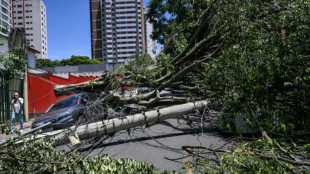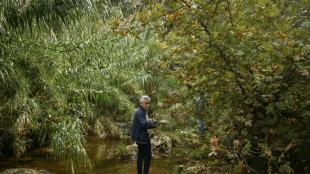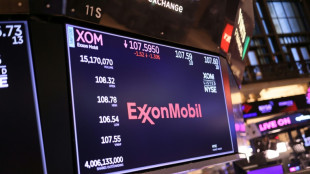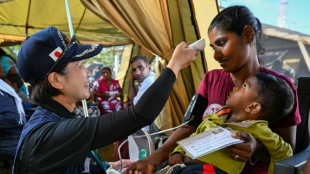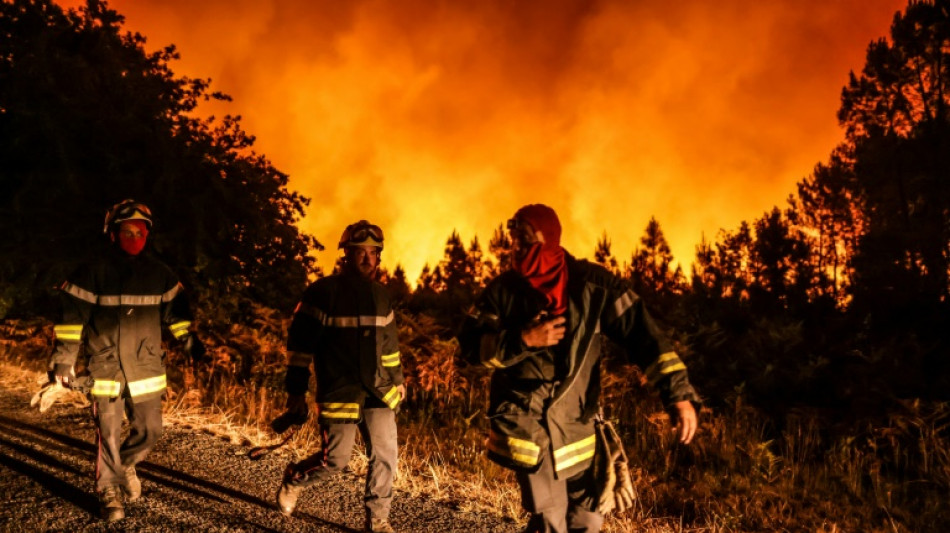
-
 Islamabad puts drivers on notice as smog crisis worsens
Islamabad puts drivers on notice as smog crisis worsens
-
Higa becomes first Japanese golfer to win Asian Tour order of merit

-
 Deja vu? Trump accused of economic denial and physical decline
Deja vu? Trump accused of economic denial and physical decline
-
Vietnam's 'Sorrow of War' sells out after viral controversy

-
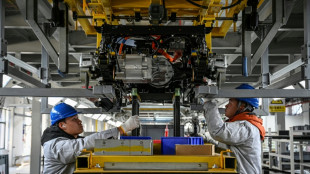 China's smaller manufacturers look to catch the automation wave
China's smaller manufacturers look to catch the automation wave
-
For children of deported parents, lonely journeys to a new home
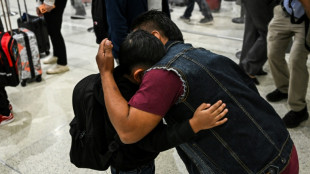
-
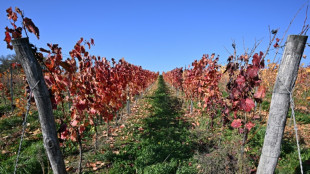 Hungary winemakers fear disease may 'wipe out' industry
Hungary winemakers fear disease may 'wipe out' industry
-
Chile picks new president with far right candidate the front-runner
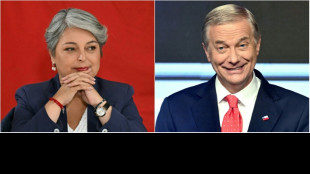
-
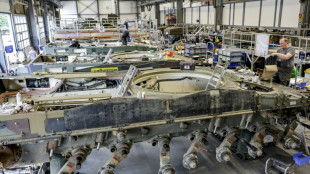 German defence giants battle over military spending ramp-up
German defence giants battle over military spending ramp-up
-
Quarterback Mendoza wins Heisman as US top college football player

-
 Knicks reach NBA Cup final with 132-120 win over Magic
Knicks reach NBA Cup final with 132-120 win over Magic
-
Campaigning starts in Central African Republic quadruple election
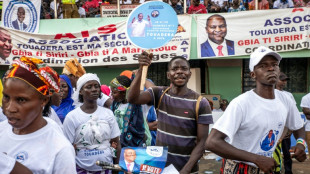
-
 NBA Cavs center Mobley out 2-4 weeks with left calf strain
NBA Cavs center Mobley out 2-4 weeks with left calf strain
-
Tokyo-bound United flight returns to Dulles airport after engine fails

-
 Hawks guard Young poised to resume practice after knee sprain
Hawks guard Young poised to resume practice after knee sprain
-
Salah back in Liverpool fold as Arsenal grab last-gasp win

-
 Raphinha extends Barca's Liga lead, Atletico bounce back
Raphinha extends Barca's Liga lead, Atletico bounce back
-
Glasgow comeback upends Toulouse on Dupont's first start since injury

-
 Two own goals save Arsenal blushes against Wolves
Two own goals save Arsenal blushes against Wolves
-
Trump vows revenge after troops in Syria killed in alleged IS ambush

-
 Maresca bemoans 'worst 48 hours at Chelsea' after lack of support
Maresca bemoans 'worst 48 hours at Chelsea' after lack of support
-
Teenage pair Ndjantou, Mbaye star as PSG beat Metz to go top

-
 Drone strike in southern Sudan kills 6 UN peacekeepers
Drone strike in southern Sudan kills 6 UN peacekeepers
-
Crime wave propels hard-right candidate toward Chilean presidency
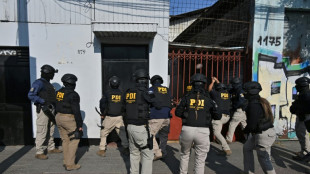
-
 'Magic' Jalibert guides Bordeaux-Begles past Scarlets
'Magic' Jalibert guides Bordeaux-Begles past Scarlets
-
Teenage pair Ndjantou and Mbaye star as PSG beat Metz to go top

-
 Anglo-French star Jane Birkin gets name on bridge over Paris canal
Anglo-French star Jane Birkin gets name on bridge over Paris canal
-
Jalibert masterclass guides Bordeaux-Begles past Scarlets

-
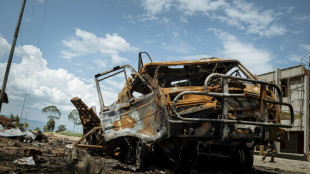 M23 marches on in east DR Congo as US vows action against Rwanda
M23 marches on in east DR Congo as US vows action against Rwanda
-
Raphinha double stretches Barca's Liga lead in Osasuna win

-
 Terrific Terrier returns Leverkusen to fourth
Terrific Terrier returns Leverkusen to fourth
-
Colts activate 44-year-old Rivers for NFL game at Seattle

-
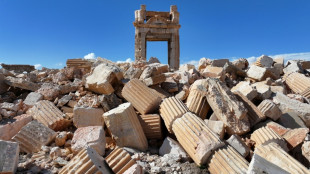 US troops in Syria killed in IS ambush attack
US troops in Syria killed in IS ambush attack
-
Liverpool's Slot says 'no issue to resolve' with Salah after outburst

-
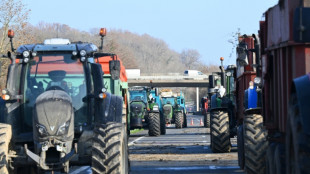 'Stop the slaughter': French farmers block roads over cow disease cull
'Stop the slaughter': French farmers block roads over cow disease cull
-
Stormers see off La Rochelle, Sale stun Clermont in Champions Cup

-
 Maresca hails Palmer as Chelsea return to winning ways against Everton
Maresca hails Palmer as Chelsea return to winning ways against Everton
-
Hungarian protesters demand Orban quits over abuse cases
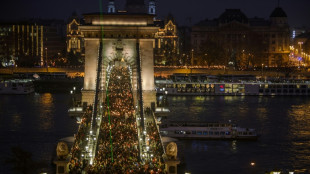
-
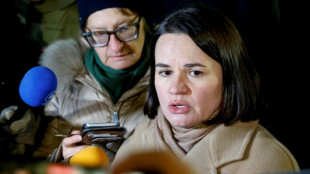 Belarus frees protest leader Kolesnikova, Nobel winner Bialiatski
Belarus frees protest leader Kolesnikova, Nobel winner Bialiatski
-
Salah sets up goal on return to Liverpool action
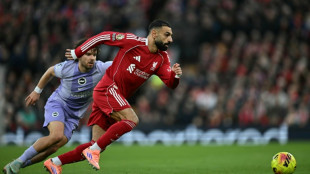
-
 Palmer strikes as Chelsea return to winning ways against Everton
Palmer strikes as Chelsea return to winning ways against Everton
-
Pogacar targets Tour de France Paris-Roubaix and Milan-San Remo in 2026

-
 Salah back in action for Liverpool after outburst
Salah back in action for Liverpool after outburst
-
Atletico recover Liga momentum with battling win over Valencia

-
 Meillard leads 'perfect' Swiss sweep in Val d'Isere giant slalom
Meillard leads 'perfect' Swiss sweep in Val d'Isere giant slalom
-
Salah on Liverpool bench for Brighton match

-
 Meillard leads Swiss sweep in Val d'Isere giant slalom
Meillard leads Swiss sweep in Val d'Isere giant slalom
-
Indonesia flood death toll passes 1,000 as authorities ramp up aid
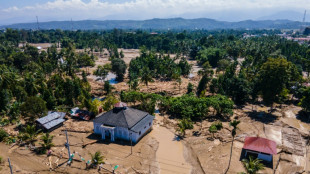
-
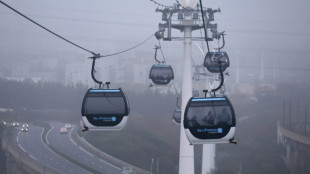 First urban cable car unveiled outside Paris
First urban cable car unveiled outside Paris
-
Vonn second behind Aicher in World Cup downhill at St Moritz


Europe's fiery summer: a climate 'reality check'?
Wildfires and storms. Rivers at record lows. Parched crops withering in the fields. For many Europeans, this year's scorching summer means climate change is increasingly hard to ignore.
After months of cloudless days and drought, the weather has been one of the major themes of media coverage -- and discussions during family gatherings -- over the annual August holiday period.
"This summer has seen a series of extreme weather events," French government spokesman Olivier Veran told a first press conference after he and the government returned to the office last week.
It had been a "complete reality check, even for the most sceptical," he said.
France experienced its second-hottest summer on record, its driest one since 1976 and the worst in terms of the loss of forestry to wildfires since 2003, he said.
In recent months, some French villages have needed to be supplied with water trucks as their usual sources have dried up. Fires have repeatedly ravaged pine forests near Bordeaux.
Even in the normally verdant Alps, cheese makers complain that their cows are producing less milk than usual because their pastures are dried up.
The picture is similar across Europe.
In Italy, the collapse of the country's largest Alpine glacier in July sparked an avalanche that killed 11 people.
"The year 2022 in terms of extreme climate events is code red," said the head of environmental group Legambiente, Stefano Ciafani, in an August report.
After a punishing drought, around 400 Spanish wildfires destroyed 290,000 hectares (72,000 acres) of forest -- way above the recent average of 67,000 hectares a year.
As reservoir water levels plunged, a previously flooded centuries-old church and a huge megalithic complex emerged from their depths.
And a year after shocking major floods that claimed more than 180 lives in Germany, the country saw the Rhine river -- a crucial trade route -- shrink to levels that were barely navigable.
- Jets and steak -
The question for experts and campaigners is how much the sweltering summer of 2022 will translate into political change and lifestyle shifts from consumers.
As people return to work, France's green EELV party has been setting the news agenda with eye-catching proposals to crack down on executive jets as well as private swimming pools.
"We've just lived through a summer when we've seen the real impact of climate change for the first time and what are we doing? What are we prepared to do?" said leading MP Sandrine Rousseau.
She found herself at the centre of a national furore this week after suggesting men needed to cut down on emissions-heavy barbecued steak which they saw as a "symbol of virility."
"What has become quite obvious is that climate impacts and climate hazards are happening throughout Europe to differing degrees and with differing hazards," Carolina Cecilio from the E3G think-tank told AFP.
"It's not limited to southern Europe, which is more used to periods of drought and forest fires," she added.
Greater awareness in big EU member states such as France, Germany and Italy could help "shape the political agenda," Cecilio said.
- Energy crisis -
Some campaigners see an opportunity for real change in the energy crisis that has gripped Europe since Russia began turning off its gas deliveries following its invasion of Ukraine.
"I think that the scale and the coming together of overlapping crises should drive us to really question our use of energy," Lola Vallejo from the IDDRI think-tank told AFP.
"We can only hope that the summer we've just lived through will play a role in accelerating our collective will," said Vallejo.
But a working paper from the Organisation for Economic Cooperation and Development in June laid bare the scale of the challenge.
Analysing survey results from 20 mostly rich countries, its experts concluded that climate change awareness was high, with 60-90 percent of people understanding it was caused by human activity.
The problem was their willingness to change.
"Respondents were generally unwilling to limit their beef or meat consumption significantly. Few are willing to limit driving or heating or cooling their homes by a lot," the authors wrote.
Italy's elections on September 25 will be a test of how much climate change has really hit home, with campaigning so far dominated by worries about the cost of living.
Polls suggests that the next government could be a coalition of far-right and right-wing parties who have put it low on their agenda.
D.Schneider--BTB

